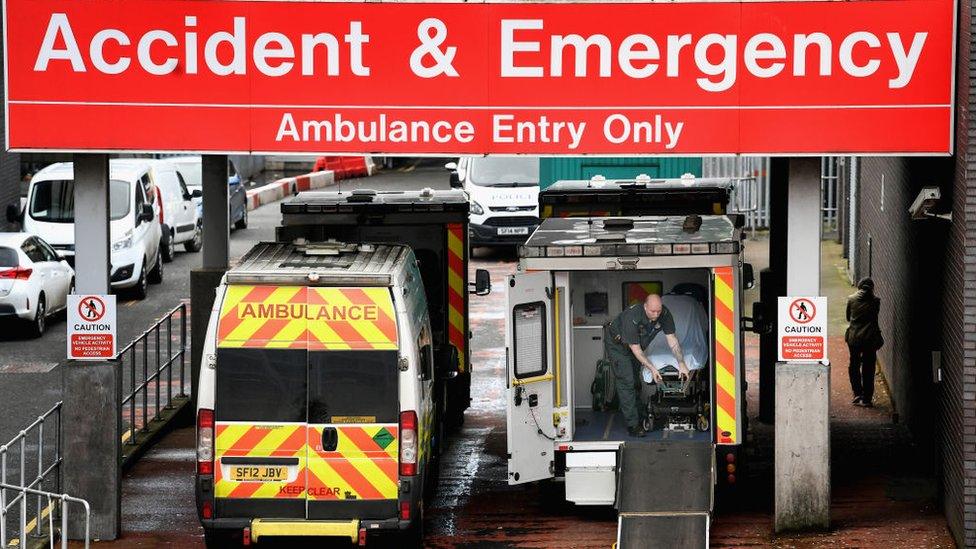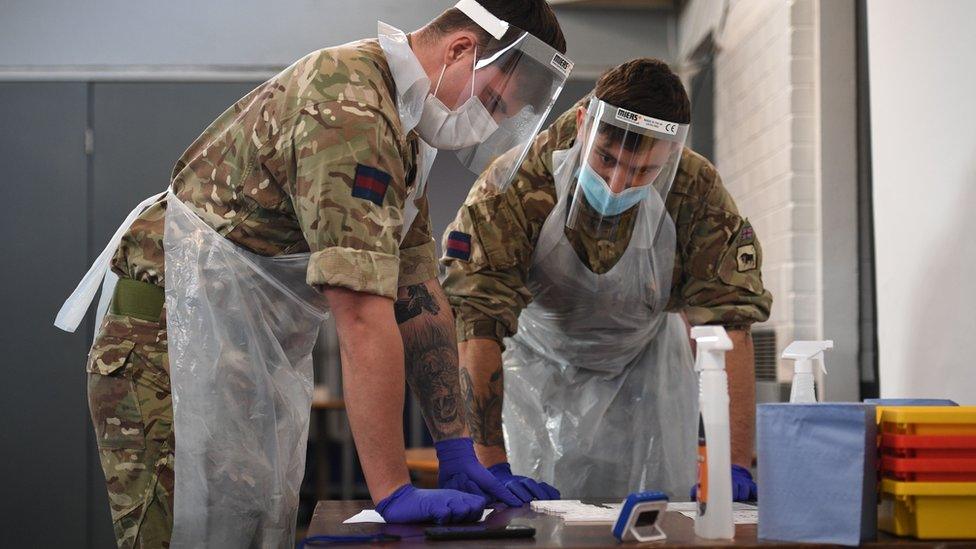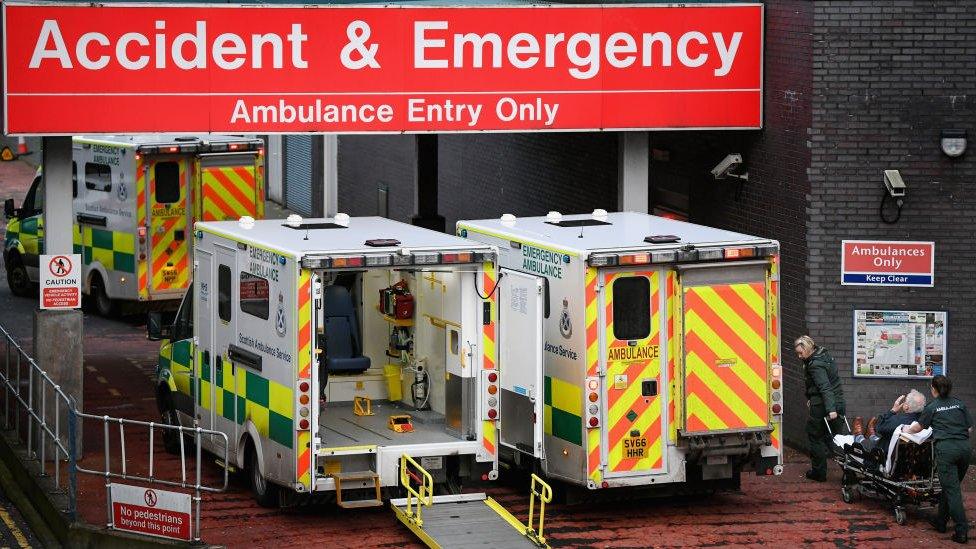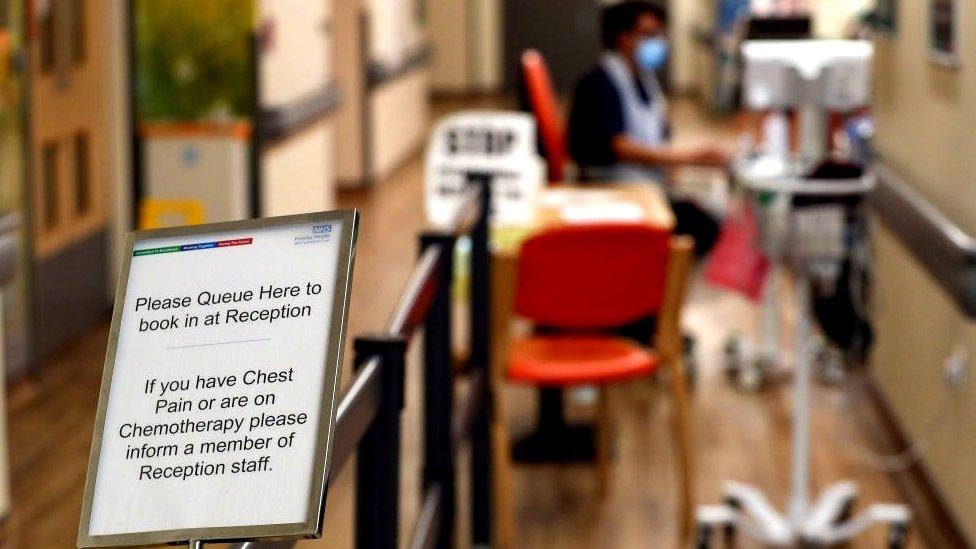Non-emergency patients to be redirected from Scotland's A&Es
- Published

People who attend A&E but don't need to be there will be redirected to other parts of the NHS under new guidance issued by the Scottish government.
Waiting times at emergency departments are the worst on record, with about 30% of people waiting more than four hours.
The new guidance means patients with non-life threatening issues will now be referred to GPs or pharmacies.
Some A&Es already have clinicians assessing people at the door to see if they should be admitted or not.
The guidance gives senior nurses and doctors a script to go through with patients to see if they require emergency treatment or could be seen elsewhere.
Health Secretary Humza Yousaf said the aim was to get patients to the most appropriate place for their ailment and free up doctors to focus on emergency care.
He added: "It is widely recognised that more people could be better seen away from hospital and closer to home by a more appropriate care provider such as a pharmacy or GP practice or indeed, managed with self-care guidance.
"By adopting a consistent approach across Scotland, we can reduce delays in assessment and treatment, prevent overcrowding in emergency departments and ultimately release doctors to deliver emergency care to those who really need it."
Health boards across the country have struggled to deal with normal service on top of the pandemic and emergency department waiting times have soared as a result.
Glasgow's health board has urged patients only to attend A&E if an issue is "life-threatening" after it emerged a third of those who went to its flagship hospital in one week were there for minor injuries.
The guidance being issued by the Scottish government for all health boards is based on a redirection policy that NHS Tayside has had in place for the last 23 years.

Military personnel have been helping out in a number of under-pressure health boards
Emergency Medicine Clinical Lead for NHS Tayside Dr Alison White said the policy "provides people with better care than could be provided by emergency department staff".
She added: "It also ensures specialist emergency medicine skills are directed towards those who need us such as people who have suffered a stroke, significant injury or heart attack, so care is delivered in a timely manner."
'Proper resourcing'
Dr Andrew Buist, chairman of the BMA's Scottish GP committee, said: "Redirection - at A&E front door by senior clinical decision makers - has proven to be a very effective intervention method over the years at NHS Tayside.
"It makes sense to have this model in place across the system. However, the Scottish government must ensure public messaging is clear and concise around where patients should actively seek advice for their specific health needs.
"This is about proper resourcing across the whole system. A&E is under massive pressure, so are GPs and this should not result in everyone being redirected from A&E to their GP practice."
Scottish Labour's health spokeswoman Jackie Baillie added: "The health secretary is detached from reality if he thinks the biggest problem here is crowds of people desperate to spend 12 hours sitting in A&E for no good reason.
"Of course we need to use our common sense, but imposing harsh restrictions at A&E without improving access to other services in the system will only pile on the pressure elsewhere in our over-stretched health service."


Related topics
- Published23 October 2021

- Published19 October 2021

- Published29 October 2021
